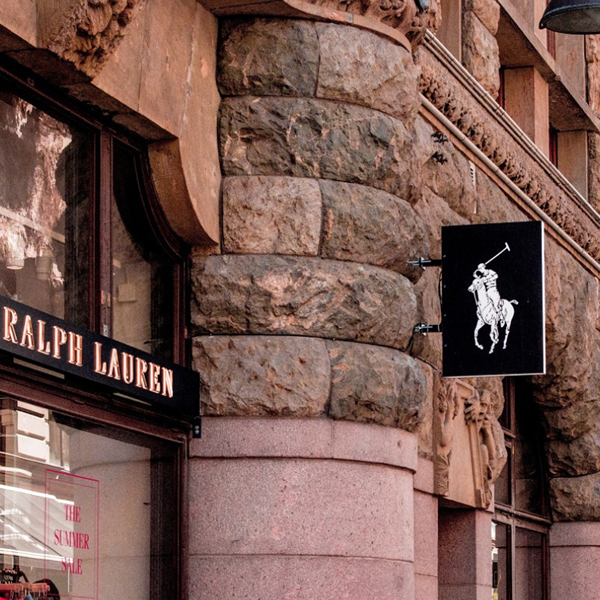In a controversial move, the Australian Government passed its News Media Bargaining Code (“the Code”) into law on 2 March 2021. The Code is the world’s first piece of legislation to compel market-dominating tech giants to pay news publishers in exchange for displaying their content. Partner, Mark Snelgrove and trainee solicitor, Brogan Roache summarise.
Still in its infancy, the Code currently only applies to Google and Facebook. This hasn’t lessened its impact though. Facebook’s objections to the Code led to it temporarily suspending access to Australian news links, albeit this has now been restored following last-minute amendments to the Code. On the other hand, Google claims to have already struck deals with some of the “big media players”, including Rupert Murdoch’s News Corporation empire.
The primary motivation underpinning the Code is the Australian Government’s concerns surrounding unfair competition. Longstanding issues have arisen, owing to the dominance in the online marketplace of tech powerhouses Google and Facebook, which are disproportionately affecting the bottom lines of national media organisations. The Code seeks to address this imbalance by giving media organisations a platform to negotiate payments in exchange for rights to display their content in news feeds and search results. Previously, such conversations were often both fruitless and futile.
COMPETITION LAW OR COPYRIGHT?
Closer to home, similar concerns began receiving the attentions of the EU in 2014, culminating in the passage of the Directive on Copyright in the Digital Single Market (“the Copyright Directive”) in 2019. The Copyright Directive must be implemented in the national law of all EU Member States by 7 June 2021.
Like the Code, the Copyright Directive seeks to ensure that news publishers are fairly remunerated for use of their content by the “big tech” organisations who display it on their online platforms. However, unlike the Code which relies on competition law, Article 15 of the Copyright Directive does this by creating a new ancillary right to copyright. This new right gives publishers of press publications who are established in an EU Member State exclusive rights over the reproduction and availability for online use of their publications, a right which subsists for two years. This is a development on existing copyright law, which protects individual articles as literary works of the author but does not extend to those who commission, edit, format or publish those articles into overall publications.
The EU hopes that by leveraging this new right to copyright, press publishers can negotiate new or improved licensing agreements to display their content, securing fairer compensation from the likes of Google and Facebook. This should also benefit the authors of individual articles, as Member States must ensure that those authors receive an appropriate share of any licensing revenue paid to the publisher for the publication.
THE COPYRIGHT DIRECTIVE MEETS THE CODE
Despite the measures taken in the Copyright Directive, there have been growing calls for further law reform. Many EU publishers have expressed their desire for Member States to follow in the footsteps of the Australian Government and supplement the Copyright Directive with additional competition law measures, aimed at addressing the persistent dominance of Google and Facebook in the online marketplace. Microsoft recently joined forces with Europe’s four largest news publishers to issue a joint statement to the EU, urging it to adopt the same approach to its legislative reforms as that taken by the Code.
The European Parliament appears to be listening. It is in the process of implementing further measures through the Digital Services Act and the Digital Markets Act (“the Acts”). Although the European Commission has made it clear that “the situation is different” in the EU to that in Australia, owing to the existence of the Copyright Directive, it remains a distinct possibility that the Acts could be amended to incorporate various aspects of the Code before receiving Parliamentary approval. The progression of the Acts will certainly be watched with interest by publishers and tech conglomerates alike.
WHY THE CONTROVERSY?
Despite the best intentions of both the Code and the Copyright Directive, which appear at first glance to be positive steps for publishers, it has been widely debated whether the legislative reforms will ultimately do more harm than good.
The primary concern with the Copyright Directive is that protection under Article 15 is limited. It does not extend to hyperlinking, nor to the use of individual words or very short extracts of a press publication. This gives tech companies an “out”, as they can display more limited content and thereby avoid licensing fees. These shorter excerpts have been shown to reduce digital traffic to publishers’ websites, as users find such links less “click-friendly” than their longer predecessors. For publishers who rely on this exposure to generate digital traffic, this is a worrying possibility. These limitations do not exist under the Code; it remains to be seen whether the Acts will address this loophole.
Another fear underlying both the Copyright Directive and the Code is that Google and Facebook will stop reproducing and sharing news publications in affected jurisdictions altogether. Australia has survived this initial scare by appeasing Facebook with some last-minute amendments to the Code. However, there is precedent from Germany (in 2013) and Spain (in 2014) where Google previously stopped producing Google News after similar national laws were implemented. Both national legislators eventually backtracked on the position as it became clear the extent to which news publishers, particularly smaller publishers, rely on Google to generate traffic to their own websites.
IMPACT OF THE NEW MEASURES
Notwithstanding these initial concerns, the multi-national reach of the new measures across the EU bloc and Australia undoubtedly helps. Shutting down services in all affected jurisdictions is becoming an untenable option.
Positive action is instead already being taken. Following the passage of the Code, Google has launched its “News Showcase” tool. This tool allows press publishers to license their media content to Google in exchange for payment. Publishers are given editorial control to package their stories that appear in the News Showcase in line with their own preferences and that of their audiences, with the hopes of increasing audience engagement.
Facebook has also noticeably stepped up its efforts to reach licensing deals with news publishers in the EU. Following the launch of Facebook News in the UK, it is said to be in “active negotiations” to launch the feature with partners in France and Germany. Other jurisdictions will doubtless follow in the coming months.
WHAT IS THE UK'S POSITION?
Following Brexit, the UK government has confirmed that it will not be implementing the Copyright Directive into UK law. Instead, the UK will continue to rely for now on its existing legal protections for the copyright of publishers and media outlets. Although some provisions of the Copyright Directive exist in UK law, Article 15 is a notable omission. This of course creates the possibility that international publishers and tech giants will begin to see a divergence between the position in the UK and that in the EU, an issue which is unaddressed and unanswered in the Brexit Trade Agreement.
Whether and how such divergence could be exploited to the advantage of either side remains to be seen. Arguably, it is beneficial for the UK to wait and see how these issues play out across the world before committing to any legislative reform. The Code is already considered by many as a “test case” for similar regulation globally. Adopting this tactic would buy the UK government more much-needed time to focus on the current Covid-19 pandemic and the unravelling of post-Brexit legislation, and may help answer the question of whether such changes should be based on copyright or competition law foundations.
However, it does seem that this issue won’t be going away quietly. The Competition and Markets Authority has recently weighed in on the debate, stating that it would like to see regulatory changes introduced which address the market “duopoly” of Google and Facebook. Perhaps the question has become a matter of when, and not if, changes will be made.
One thing is already becoming clear though. Despite the UK’s decision not to implement the Copyright Directive, Google and Facebook have been quick to launch their solutions in the UK market and begin brokering deals. Google’s UK News Showcase boasts an agreement with around 120 national and local UK publications. Similarly, Facebook News UK assembles news from various outlets including household names such as The Guardian, the Daily Mail group and the Financial Times. It may be that the UK is seen, at least for now, as a uniquely placed “testing ground” and gateway to the EU market. Whether that will remain the case into the future is another question entirely. For now, all that publishers can do is watch, wait and (where possible) negotiate.







